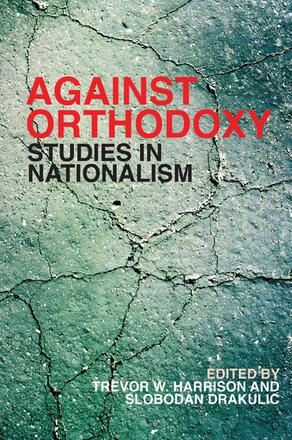
Drawing on case studies from around the globe, this provocative, accessible volume challenges the way we think about nationalism.
Description
During the Cold War, nationalism fell from favour among theorists as an explanatory factor in history, as Marxists and liberals looked to class and individualism as the driving forces of change. The resurgence of nationalism after the collapse of the Soviet Union, however, called for a reconsideration of the paradigm. Against Orthodoxy uses case studies from around the world to critically evaluate decades of new scholarship. The authors argue that theories of nationalism have ossified into a new set of orthodoxies. These overlook nationalism’s role as a generative force, one that reflects complex historical, political, and cultural arrangements that defy simplistic explanations.